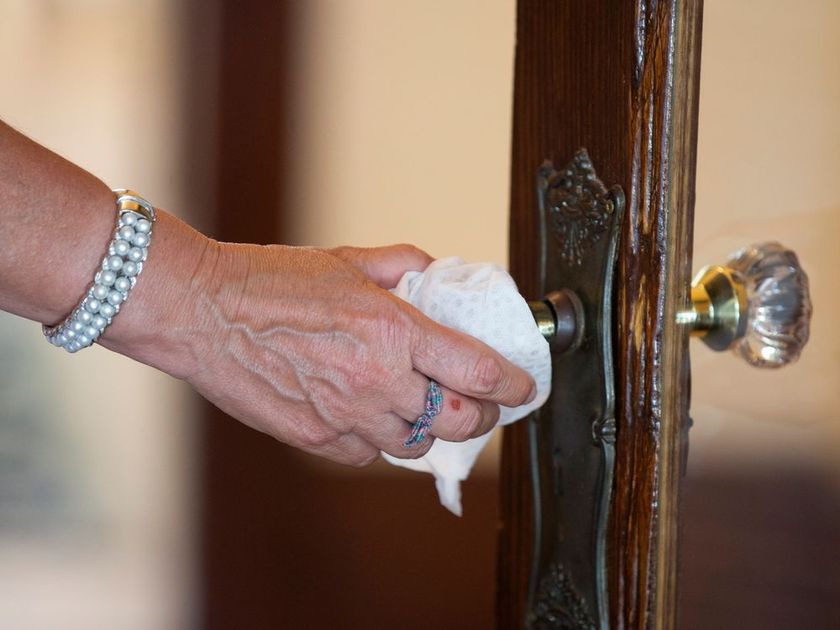A real estate agent disinfects a door handle with wipes during a client’s visit to a home for sale, amid the coronavirus disease (COVID-19) outbreak.
REUTERS
NARCH/NARCH30
The Stage 2 reopening of Ontario has injected new life into the Quinte real estate market as agents and realtors mark an uptick in requests both from buyers and sellers with respect to their homes and properties.
While the number of home sales were down in May monthly statistics, both the prices of homes and interest by consumers remains high, said Heather Plane, president of the Quinte and District Association of Realtors.
For example, association figures showed the average price for a home rose 9.2 per cent in May to an average of $406,608 as compared to the same time last year when the average home value was deemed at $372,488.
“Business is good,” Plane said, “especially for the economy. It speaks to the confidence people have in the economy in the real estate industry itself. It has picked up.”
“Since Phase 2 opened back up, many of the realtors have absolutely picked up on their business and are working hard to make sure we’re getting the proper houses for people they can afford. We’re being cautious, we want to make sure two years, three years down the road we don’t run into the crashes we had in the past.”
Plane attributed the renewed high interest in home buying to pent-up demand by consumers who have been sheltering in place since March 17 when the Ontario government implemented its state of emergency in response to the COVID-19 pandemic declaration.
Another reason for consumer interest in Quinte, she said, is an announcement by the Canadian Mortgage and Housing Corporation (CMHC) to stiffen its qualification points system surrounding debt-ratios to protect the housing market from defaults.
The tightened CMHC qualification measures are set to come into effect at the end of June.
“They are trying to get ahead of the tighter constraints coming on as of July 1, The CMHC is tightening their qualifications,” she said. “There are people out there who are looking and want a firm deal by that time and cut-off.”
The increase in requests from buyers are being made to local real estate firms, she said, because they know their own backyard.
“We do promote using a local realtor as a board. The realtors know the market in this area, we know what to look for in a house, wells, waters and septics,” she said.
The busier real estate market is lifting the spirits of real estate agents, she said, after a three-month hiatus as well as May statistics that showed volume of sales of residential properties fell.
“Residential unit sales for May 2020 resulted in 241 sales, down significantly from 388 sales for 2019, for a decrease of 37.9 per cent,” Plane said in an earlier report from the board.
The number of active residential listings currently sits at 737 units compared to 968 units in 2019 resulting in a reduction of 23.9 per cent.
The May 2020 monthly dollar sales for all property types was $104,315,383 reflecting a substantial decrease of 30.9 per cent below May 2019, which was $150,895,886.
The May monthly dollar sales for residential listings resulted in a similar decrease of 32.2 per cent with $97,992,483 for 2020 compared to $144,525,186 for 2019.
























